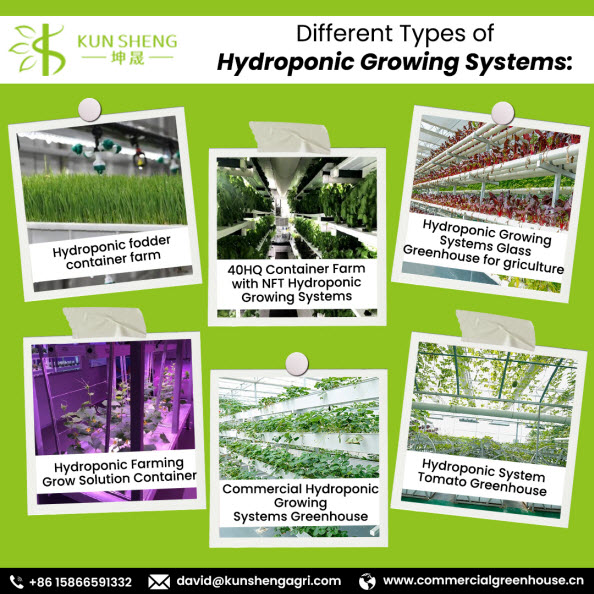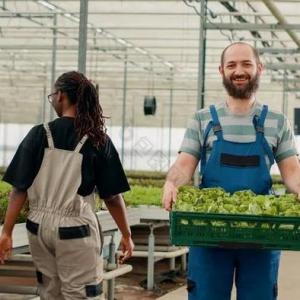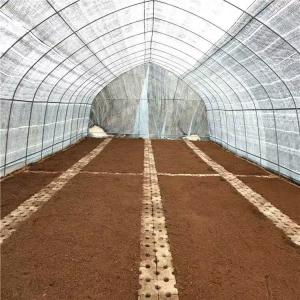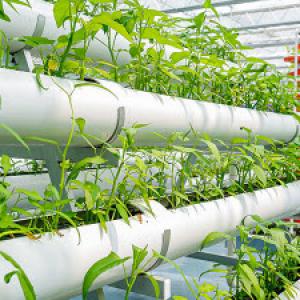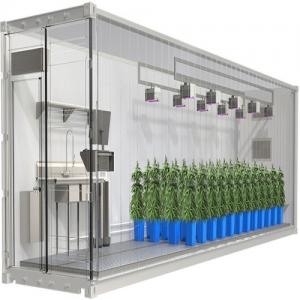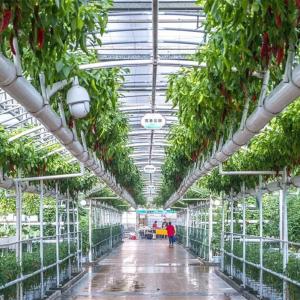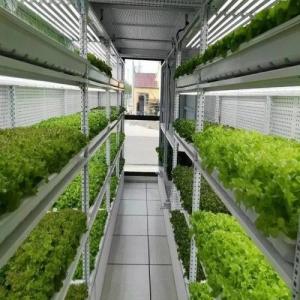Economic Benefits of Hydroponic Systems in the Middle East
Introduction
Hydroponic systems have gained significant popularity in recent years, especially in the Middle East region. This innovative method of growing plants without soil offers numerous economic benefits that have attracted the attention of farmers, entrepreneurs, and governments alike. In this article, we will explore the economic advantages of hydroponic systems in the Middle East and shed light on how this technology is revolutionizing the agricultural sector.
What are Hydroponic Systems?
Hydroponic systems are a modern agricultural technique that enables plants to grow without the use of soil. Instead, plants are grown in a nutrient-rich water solution, allowing for optimal growth and development. The absence of soil eliminates the need for extensive land space, making hydroponics a viable solution for areas with limited arable land, such as the Middle East.
How do Hydroponic Systems Work?
Hydroponic systems operate on the principle of delivering essential nutrients directly to the plant roots. This is achieved through various methods such as nutrient film technique (NFT), deep water culture (DWC), and aeroponics. Each system has its unique advantages and can be tailored to suit different plant species and growth stages.
Why are Hydroponic Systems Ideal for the Middle East?
The Middle East region faces several challenges when it comes to traditional agriculture, such as water scarcity, limited arable land, and harsh climatic conditions. Hydroponic systems offer a sustainable solution to these challenges by minimizing water usage, maximizing crop yield, and allowing cultivation in controlled environments.
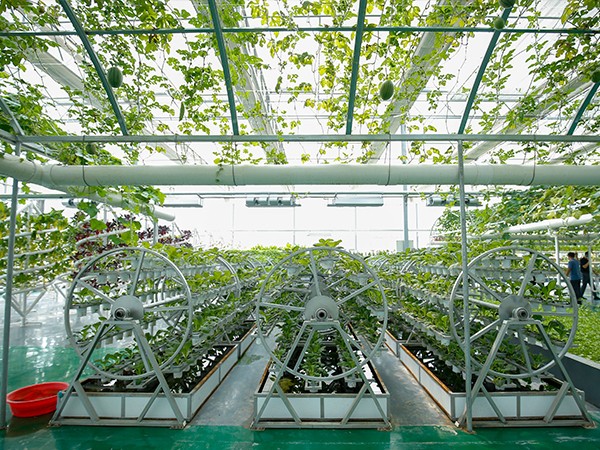
Economic Benefits of Hydroponic Systems in the Middle East
Hydroponic systems bring forth a plethora of economic benefits for the Middle East region. Let's delve into some of the most prominent advantages:
Water Efficiency and Conservation
Water scarcity is a critical issue in the Middle East, making efficient water usage a top priority. Hydroponic systems utilize recirculating water systems, where water is constantly reused within the closed-loop system. This significantly reduces water consumption compared to traditional soil-based farming, where water often goes to waste through evaporation and inefficient irrigation methods. As a result, hydroponics offers a more sustainable and water-efficient method of agriculture, ensuring optimal water conservation.
Increased Crop Yield
One of the significant economic benefits of hydroponic systems is the potential for higher crop yields compared to conventional farming methods. By providing plants with an optimized nutrient solution, ideal pH levels, and controlled environmental conditions, hydroponics creates an environment where plants can thrive and grow at an accelerated rate. This translates to increased productivity and profitability for farmers in the Middle East.
Year-Round Crop Production
The Middle East is known for its extreme temperatures, with scorching summers and mild winters. Traditional farming methods are often limited to specific seasons due to these climate conditions. However, hydroponic systems enable year-round crop production by providing a controlled environment that can be adjusted to meet the specific needs of different plant species. This continuous crop production leads to a steady income stream for farmers, reducing their dependency on seasonal harvests.
Space Optimization and Vertical Farming
Hydroponic systems require significantly less space compared to traditional farming methods. With the ability to stack plants vertically, hydroponics allows for the cultivation of crops in a compact area. This is particularly beneficial for urban areas in the Middle East, where land availability is limited and expensive. Vertical farming using hydroponic systems maximizes land utilization and opens up opportunities for urban agriculture, creating a sustainable and efficient use of space.
Reduction in Pesticide Usage
In traditional farming, pesticides are often used to protect crops from pests and diseases. However, excessive pesticide usage can have detrimental effects on the environment and human health. Hydroponic systems provide a controlled environment that minimizes the risk of pest infestations, reducing the reliance on harmful chemicals. This not only promotes a safer and healthier food production system but also reduces the costs associated with purchasing and applying pesticides.
Employment Opportunities
The implementation of hydroponic systems in the Middle East creates new employment opportunities. The operation and management of hydroponic farms require skilled labor, ranging from system designers and technicians to crop specialists and marketing professionals. The expansion of this sector contributes to job creation, stimulates economic growth, and supports local communities.
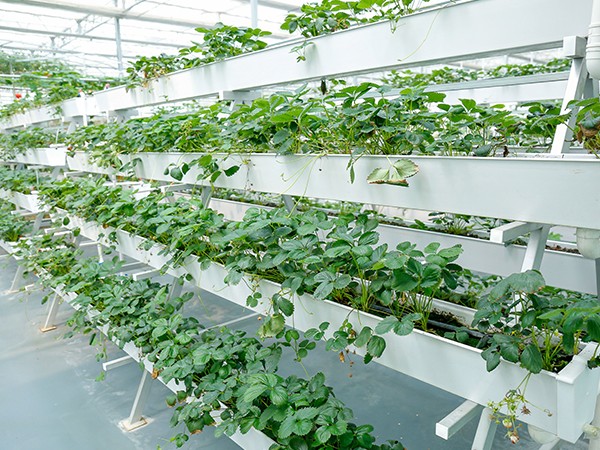
Diversification of Agricultural Products
Hydroponic systems offer flexibility in crop selection and diversification of agricultural products. In the Middle East, where traditional farming is often limited to a few staple crops, hydroponics allows for the cultivation of a wide range of fruits, vegetables, herbs, and even flowers. This diversification not only expands the market options for farmers but also reduces the region's dependence on imported produce, promoting self-sufficiency and strengthening the local economy.
FAQs (Frequently Asked Questions)
FAQ 1: Can hydroponic systems be implemented in arid regions of the Middle East?
Yes, hydroponic systems are particularly suitable for arid regions as they minimize water usage through recirculating systems and allow for controlled environmental conditions that can be adjusted to accommodate the challenging climate.
FAQ 2: Are hydroponic systems expensive to set up and maintain?
While the initial investment may be higher compared to traditional farming methods, hydroponic systems offer long-term cost savings through water efficiency, increased crop yield, and reduced reliance on pesticides. With proper planning and management, hydroponics can be a financially viable option for farmers in the Middle East.
FAQ 3: Is it necessary to have a background in agriculture to start a hydroponic farm?
While a background in agriculture can be beneficial, it is not a prerequisite. Training programs, courses, and resources are available to help individuals learn the principles and techniques of hydroponics. With dedication and willingness to learn, anyone can start a successful hydroponic farm in the Middle East.
FAQ 4: Are hydroponically grown crops as nutritious as traditionally grown crops?
Yes, hydroponically grown crops can be equally nutritious, if not more so, compared to traditionally grown crops. The controlled environment in hydroponic systems allows for precise nutrient delivery, resulting in healthy and nutrient-dense plants.
FAQ 5: Can hydroponics be integrated into existing agricultural systems?
Yes, hydroponic systems can be integrated into existing agricultural systems, allowing farmers to diversify their production and optimize land utilization. It provides an opportunity for traditional farmers in the Middle East to adopt sustainable practices and enhance their agricultural operations.
FAQ 6: Are there any government incentives or support for hydroponic farming in the Middle East?
Some governments in the Middle East have recognized the potential of hydroponic farming and have introduced initiatives to support and incentivize its adoption. These may include financial assistance, research grants, and training programs aimed at promoting sustainable agriculture and food security.
Conclusion
The economic benefits of hydroponic systems in the Middle East are undeniable. From water efficiency and increased crop yield to year-round production and space optimization, hydroponics offers a sustainable and profitable solution to the agricultural challenges faced by the region. By embracing hydroponic technology, farmers in the Middle East can overcome limitations posed by water scarcity, limited land availability, and harsh climates, while maximizing their productivity and profitability.
The economic advantages of hydroponic systems extend beyond the individual farmer. The implementation of hydroponics stimulates job creation, promotes local economic growth, and reduces the region's dependency on imported produce. Additionally, hydroponics allows for diversification of agricultural products, expanding market options and strengthening the Middle East's food security.
As the demand for fresh, locally grown produce continues to rise, hydroponic systems present an opportunity for sustainable and efficient farming practices. By harnessing the benefits of hydroponics, the Middle East can not only overcome agricultural challenges but also establish itself as a leader in innovative and environmentally friendly farming methods.
In conclusion, the economic benefits of hydroponic systems in the Middle East are far-reaching. From water conservation and increased crop yield to employment opportunities and diversification of agricultural products, hydroponics offers a promising future for the region's agricultural sector. By embracing this technology, the Middle East can achieve sustainable and profitable farming practices, ensuring food security and economic growth for generations to come.
